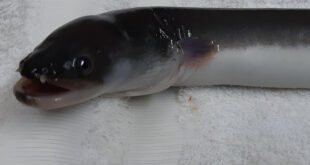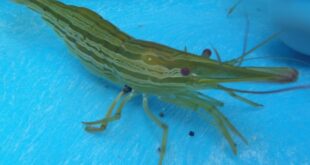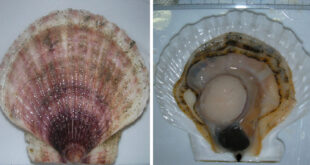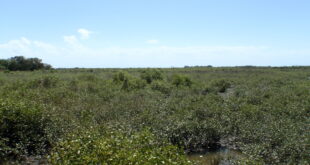By Development Communication Section / R Lacierda

Farm owner Dr. Mona Azzan Hassan Abdat and assistant farm manager Mr. Mohamed aad Mohamed Abu Taleb finished the special training course on seabass hatchery operation and management from 16 to 31 October 2014. The Al Shams for Fish Development Company of Egypt requested for this special training schedule. The course objective is to teach the participants the basic technical skills and knowledge in the operation and management of a seabass hatchery.
The 16-day course included lectures on seabass broodstock management and induced-spawning, larval rearing and nursery culture of seabass in land-based tanks, as well as on the nursery and grow-out culture of sea bass and other marine fishes in cages. Additional lectures comprised the culture of natural food, and the detection and prevention of diseases in sea bass and other marine fishes. Practical activities complemented these lectures. These included broodstock sampling and hormone injection to induce spawning; installation of egg collectors in the broodstock tanks; collection of eggs, counting, disinfection and incubation of the collected eggs. The participants were also taught how to calculate fertilization rates and hatching rates and were allowed to observe the progress of embryonic development. They also did actual larval rearing runs from stocking of newly hatched larvae through the critical early larval stages. The practicals on natural food production touched on the identification of phytoplankton; isolation and purification techniques using microcapillary methods; counting techniques; culture media preparation; and the scale up of algal cultures.
This is the 3rd training course attended by Dr. Abdat. Last year, she attended the Training Courses on Shrimp Hatchery Operation and Management and the Community-Based Freshwater Aquaculture for Rural Areas of Southeast Asia. She plans to send more of her staff to attend SEAFDEC/AQD’s training courses.





 SEAFDEC/AQD Southeast Asian Fisheries Development Center | Aquaculture Department
SEAFDEC/AQD Southeast Asian Fisheries Development Center | Aquaculture Department



